
Programme Module
In a society in which education of young children is recognized as being the foundation for their future learning, this early childhood field now demands well-qualified and dedicated practitioners with a sound understanding of the learning needs of young children.
PROGRAMME
DURATION (YEAR)
CREDIT HOURS

24 ACADEMIC
MODULES

2 PRACTICUMS
4 MPU
MODULES
An Introduction to Early Childhood Education
Definition of early childhood education
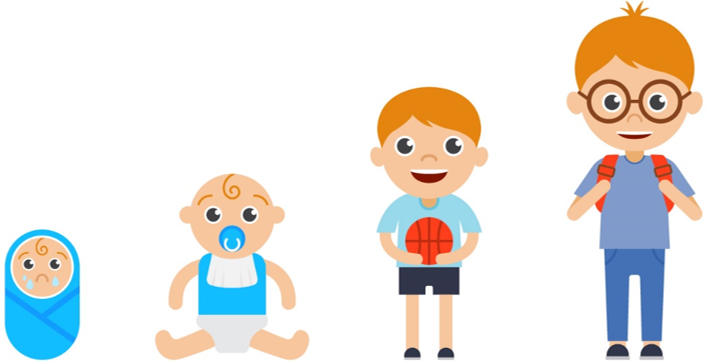
Early childhood, defined as the period of birth through 8 years old, is the golden period of learning. Therefore, early childhood education carries the meaning of the learning experiences that a young child goes through during this period. Any form of activities that can help a child gain social, physical, behavioural, or cognitive understanding are part of the education.
Types of early childhood education

In general, early childhood education can be divided into formal and informal education, which are two opposing learning styles. Formal education refers to what children learn in a traditional classroom which is curriculum-based and instructor-led, whereas informal education is anything learned more independently from casual and unstructured activities related to daily life experiences, family, or leisure.
Early childhood education providers
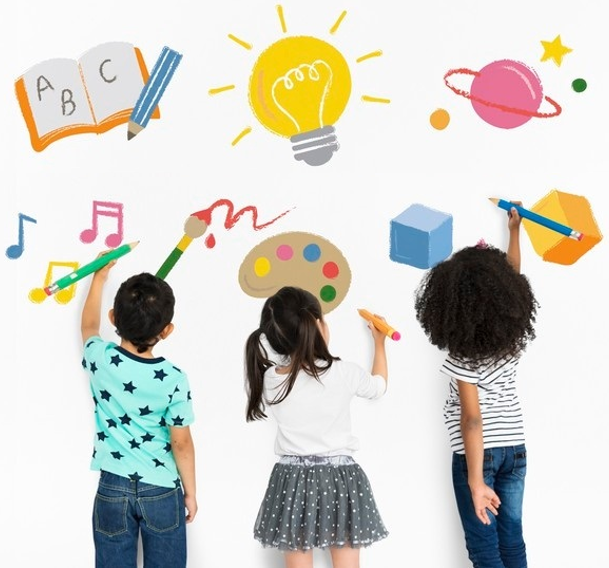
Early childhood education also refers to any type of educational programme designed to aid in the cognitive and social development of children, before they are old enough to enter primary school. These programmes are normally provided under different settings such as childcare centres, nursery school, preschool, and kindergarten. Although the curriculum and teaching approaches applied may vary, they are aligned with the generally agreed-upon standards for the types of learning addressed in early childhood education settings.
Early Childhood Education in Malaysia
Types of early childhood education
Early childhood education in Malaysia is categorized into two age groups: 0-4 years old and 4-6 years old, However, none of them is obligatory. Compulsory education in Malaysia only begins at the age of 7 which takes place in 6-year primary school.
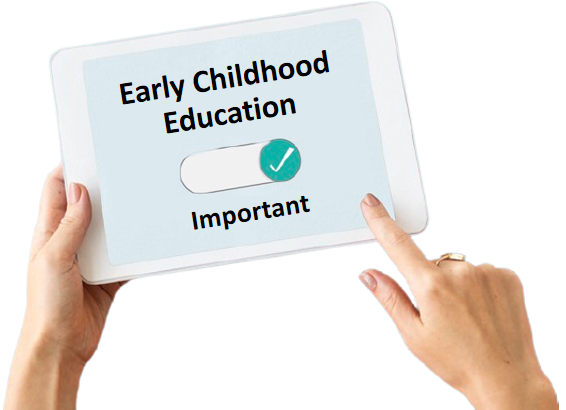
Nevertheless, due to the rising awareness of the benefits and importance of early childhood education in Malaysia, early childhood education in Malaysia is becoming more and more popular. More parents are willing to invest in early childhood education by sending their children to educational institutions as early as possible to better prepare them for school. These educational institutions are divided into two types: “Taska” and “Tadika”, in which both are Malay terms.
Taska vs. Tadika
“Taska” stands for “Taman Asuhan Kanak-Kanak”, and it caters for children below 4 years old only. Two examples of “Taska” are childcare centers and nursery schools. The registration and operation of “Taska” is monitored by the Ministry of Women, Family and Community Development (KPWKM).
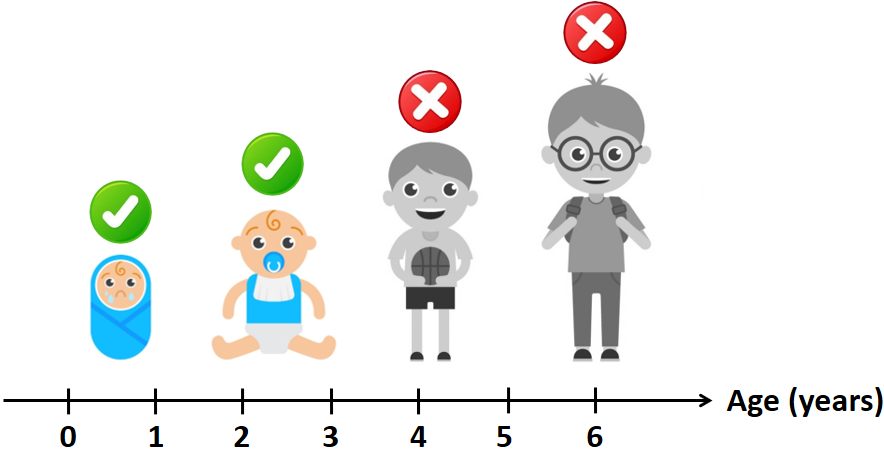
On the other hand, “Tadika” stands for “Taman Didikan Kanak-Kanak” which refers to kindergartens that only enrol children between the age of 4 to 6 years old. Unlike “Taska”, the registration and operation of “Tadika” is under the supervision of the Ministry of Education and a few other agencies.
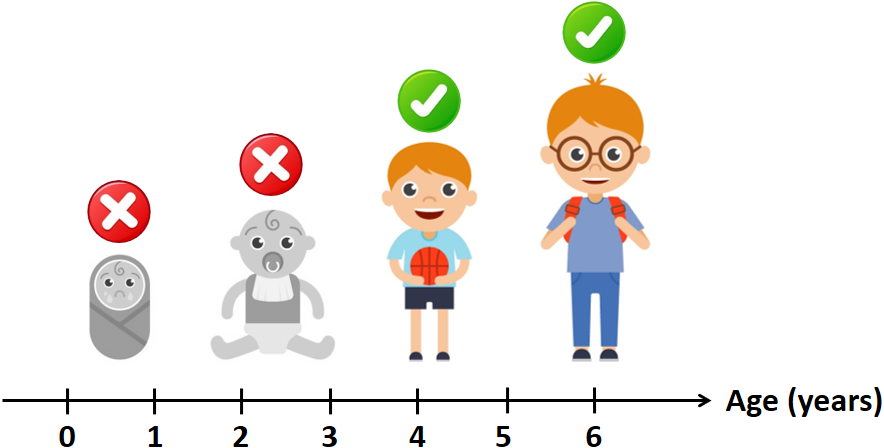
Initiatives taken by the Government
The importance of early childhood education in Malaysia has also been highly emphasized by the government via the move of formulating National Policy for Early Childhood Education, which will provide more support to improve the growth and development of children, as well as making early childhood education in Malaysia more accessible to more children, especially those living in rural areas.
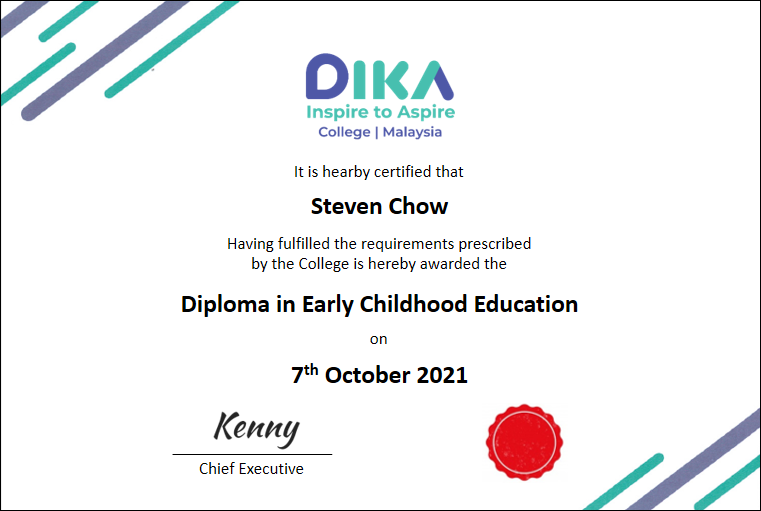
Besides, in 2016, the Ministry of Education (MoE) has announced that all preschool teachers must hold at least a Diploma in Early Childhood Education by 2020, to ensure that early childhood education in Malaysia is of high quality and also to raise the professionalism of preschool teachers in Malaysia. [1]
Reference:
- http://eccecouncil.org/diploma-is-a-must-for-pre-school-teachers-in-2020/
The Importance of Early Childhood Education
The growth and development of children’s brains

The average baby’s brain is about 25% of the size of the average adult brain at 9 months old. At the age of 3, it has reached 80% of its adult size. Then, it keeps growing to about 90% of the adult size by age 5.[1] According to Harvard University’s Centre on the Developing Child, 90% of a child brain’s development happens before the age of 5.[2] In other words, children go through the most rapid phase of growth with brain development at its peak during their early childhood.
How can children benefit from it?
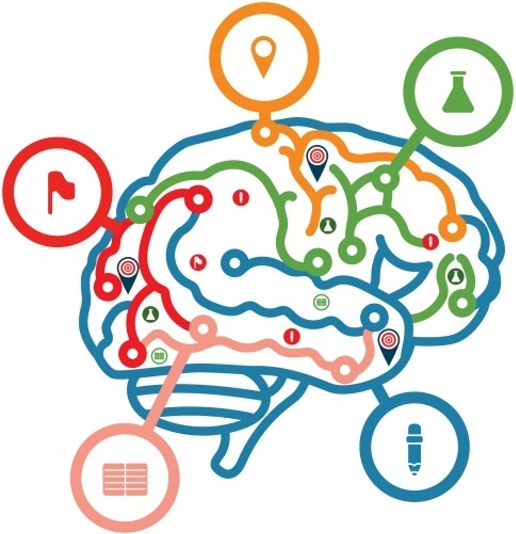
During this stage, children are highly influenced by the environment and the people that surround them. A research has revealed that an unhealthy home environment can negatively affect a child’s brain development, which could result in poor language skills, behavioural problems and school readiness impairment.[3] Other research studies have discovered that early stimulation interventions for infants and toddlers could result in higher high-skilled jobs employability and future earnings.[4]
Early childhood education is the best investment a country can make

A simulation on increasing pre-school enrolment in 73 countries found benefits in terms of higher future wages as a return; the simulation also indicated potential long-term benefits that can go up to $34 billion.[5] In 2016, United Nations Children’s Fund (UNICEF) and the World Bank Group were jointly urging global and national leaders to step up action and investments in early childhood development programmes as a critical foundation for equitable development and economic growth.[6]
How can a community, society or a country benefit from it?

Throughout the years, numerous well-established research has shown the importance of early childhood education as an essential building block of a child’s future success. In other words, early childhood education is one of the best investments a country can make to prepare children for learning and develop their full potential, which can help to boost economic growth, promote peaceful and sustainable societies, and eliminate extreme poverty and inequality.
Early childhood education is a game changer

Quality early years learning experience, which serves as the foundation for future development, can significantly shape the later years of an individual’s life. Therefore, early childhood education plays an important role in making the holistic development of a child’s social, emotional, cognitive and physical needs a success which helps to build a solid foundation for their lifelong learning, wellbeing and learning abilities, including cognitive and social development. In conclusion, early childhood education is a game-changer for children, families, communities, societies and countries.
Reference:
- https://www.adam-mila.com/brain-development-children-0-6-years
- http://kelcambodia.com/90-of-a-child-brains-development-happens-before-the-age-of-5/
- http://www.urbanchildinstitute.org/resources/publications/data-book-2013/family-home
- http://www.worldbank.org/en/topic/earlychildhooddevelopment
- https://sites.unicef.org/earlychildhood/index_69851.html
- https://news.un.org/en/story/2016/04/526772-unicef-world-bank-urge-greater-investment-early-childhood-development
Benefits of Pursuing Diploma in Early Childhood Education
Below are some amazing reasons as to why you should pursue a Diploma in Early Childhood Education.
-
The career is incredibly rewarding

If you decide to pursue a career as an early childhood educator, you have the power to make a difference in children by shaping their minds and hence influence the future generations. The first five years of a child’s life are pivotal to their long-term success. It is truly rewarding and fulfilling when educators get to be part of the process, watching them learn, explore, and grow, and finally witnessing their success and achievements. Parents would also be extremely grateful for your contribution, and the children will thank you when they have finally grown up and made their own way in the world.
-
Every day is different, challenging but exciting
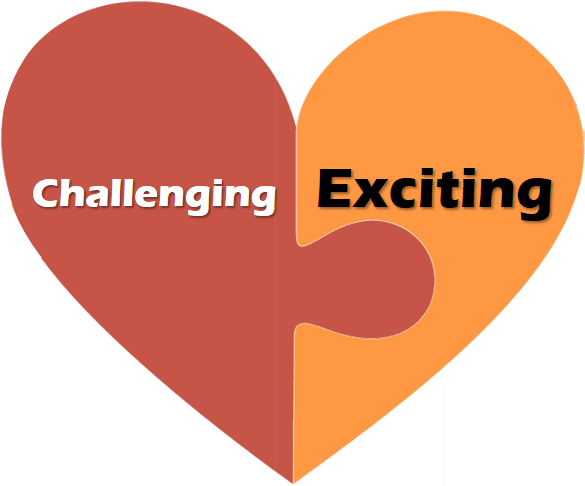
Every child is different. They have different personalities, interests and strengths; and hence they have different needs and they might develop differently. As an early childhood educator who is actively engaged in their development, you will need to have enough creativity and imagination to constantly inspire them in order to help them realise their true potential, which could also be what your inner child wants to do. You will never get bored working in such a fun and energizing environment.
-
You will be joyful everyday

Most jobs would require one to be at the office from 9am to 6pm, but as an early childhood educator, your workplace is a fun and exciting playground filled with lots of laughter. What you need to do is to plan fun and engaging educational activities for young children where they can enjoy themselves. If you love being with kids, this will be your dream career. You will also smile a lot when you get to see those happy, smiling little faces every day. Moreover, since most preschools or kindergartens only operate half a day or until noon, this allows the educators some flexibility to work across other roles without compromising their work-life balance.
-
You will never stop learning
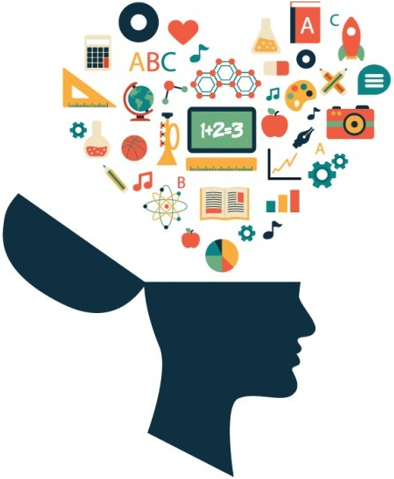
As children grow and develop, they are constantly encountering new things to learn and to do. Most of the time, they would learn through re-enactment, in which they will try to copy what they have seen adults do. Then, when they try to figure things out but fail, they will turn to adults and ask a lot of questions about life and how the world works. In fact, a research study discovered that children tend to ask their parents around 73 questions a day.[1] Did you know we tend to take many things for granted, and do things without thought? However, when we are asked such questions, we get opportunities to learn new things about life.
-
There are various career options
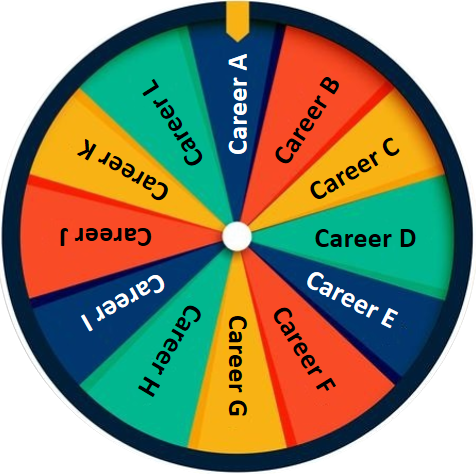
Many people have a wrong perception that a student who enrols in a Diploma in early childhood education programme will automatically be a preschool teacher. No doubt, this is a respectable and admirable profession, but it is just one of the many career options. Some other job opportunities that you could explore are listed under the section of Career Path such as Au Pair, Curriculum Developer, Children Entertainer, Author of Children Book, Principal, etc.
-
The early childhood education industry is constantly growing

The pandemic has resulted in a severe economic crisis. Although many industries are suffering, some are thriving. One of these industries is early childhood education. According to a research study conducted by Facts and Factors, the early childhood education industry is estimated to grow globally until 2026, despite the impact of pandemic.[2] Therefore, school leavers who are interested in pursuing a Diploma in Early Childhood Education can expect the employment in the industry to grow over the next few years.
Programme Structure
In general, Diploma in Early Childhood Education’s courses are grouped into the following 5 categories.
Understanding Young Children
- Philosophy and Early Childhood Development in Malaysia
- Knowing How Young Children Grow and Learn
- Understanding Young Children With Special Needs
- Program for Infants and Toddlers
- Young Children & Play Development
- Observing & Assessing Young Children’s Development
- Catering for Diversity in Young Learners
- Safety & Health
- Nutrition & Hygiene
Educating Young Children
- Young Children and Language Literacy
- Young Children and Mathematics
- Young Children and Science
- Young Children and Technology
- Young Children and The Arts: Music, Movement & Drama
- Young Children and The Visual Arts
- Young Children and Physical Education
Personal & Professional Development
- Professional Skills for the Preschool Teacher
- Program Planning and Strategic Teaching
- Interpersonal and Communication Skills
- Practicum 1
- Practicum 2
Management of Young Children’s Programme
- Family and Community 1
- Family and Community 2
- Creating Learning Spaces for Young Children
- Classroom and Behaviour Management
- Effective Management in Early Care and Education
Compulsory MPU Modules (Mata Pelajaran Pengajian Umum)
- Pengajian Malaysia 2
- Bahasa Melayu Komunikasi 1
- Bahasa Kebangsaan A or English for Reading and Writing
- Inclusive Education in Malaysia
- Community Service
Throughout the studies of these early childhood education courses, students will be equipped with the know-how and skills to encourage, educate and support children experiencing learning and self-discovery under a safe and nurturing environment, while simultaneously fostering curiosity and developing core motor and social skills.
Entry Requirements
- Pass SPM/O-Level/IGCSE with a minimum of 3 credits
- A minimum of Grade B in 3 subjects for UEC
- Pass in related field in SKM Level 3
- Pass Certificate in Early Childhood Education from other institutions
- Other equivalent qualifications recognised by the Ministry of Higher Education Malaysia
Study Mode
- Weekdays
- Weekends
Financial Options
- PTPTN Loan
- EPF Withdrawal
- Installment Payment
Career Path
This Diploma programme can assist you in the following careers:
- Author of Children’s Books
- Au Pair
- Art Instructor
- Children’s Television Broadcaster
- Curriculum Developer / Trainer
- Consultant
- Journalist
- Lecturer
- Nutritionist
- Parenting Coach
- Product Developer
- Experiential Coach
- Event Manager
- Educator / Instructor
- Children Entertainer
- Instructional Designer
- Researcher
- Social Worker
- Teacher / Principal
- Voice Talent

